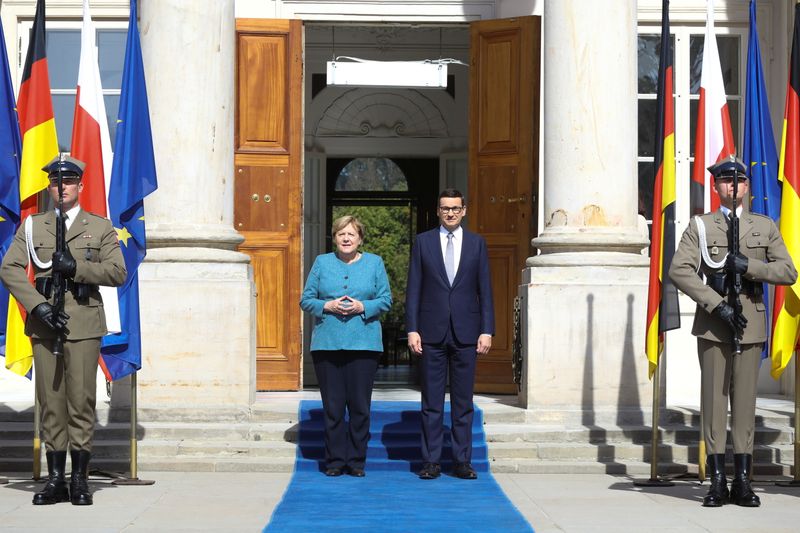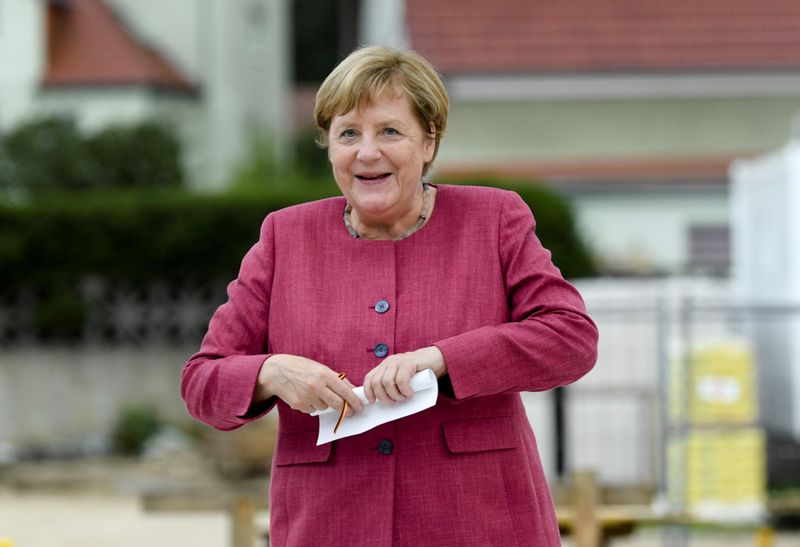By Alicja Ptak and Madeline Chambers
WARSAW (Reuters) -German Chancellor Angela Merkel tried to soothe fears over the Nord Stream 2 gas pipeline on Saturday, on a farewell visit to Poland during which she also struck a conciliatory tone on Warsaw's conflict with the European Union over judicial reforms.
As Merkel's time as Chancellor draws to a close, the issue of the pipeline from Russia has soured relations with central and eastern European nations, some of them EU members, who say it will increase the bloc's dependence on Russian gas and could be used by Moscow to exert pressure.
Russia's Gazprom (MCX:GAZP) said on Friday it had finished construction of the pipeline, located in the Baltic Sea, which could allow it to bypass political foe Ukraine, cutting off a source of billions of dollars in gas transit fees for Kyiv.
Russia's five-year gas transit deal with Ukraine expires after 2024. Russian President Vladimir Putin has said Ukraine must show goodwill if it wants to continue.
"I made clear that it is our concern that Ukraine will remain a transit land for Russian gas," Merkel said during a joint press conference with Polish Prime Minister Mateusz Morawiecki.
Morawiecki said making sure gas still transits through Ukraine despite the introduction of the Nord Stream 2 pipeline will lower the chance of "blackmail" from Russia.
RULE OF LAW
Poland and Hungary are embroiled in a long-running row with the European Union over issues including judicial independence, press freedoms and LGBT rights, a dispute that has intensified with Brussels taking legal action against Warsaw and Budapest.
The European Commission, the EU executive, has asked the bloc's top court to fine Poland over the activities of a judges' disciplinary chamber.
Merkel has faced criticism that she could have done more to stop democratic backsliding in the east of the European Union during her time in office. On Saturday, she kept the emphasis on finding consensus.

"On rule of law, we talked in depth about this.. We prefer this to be resolved through talks," she said.
"Resolving things with court cases is of course always a possibility in a country with a rule of law but politics is about more than going to court."
